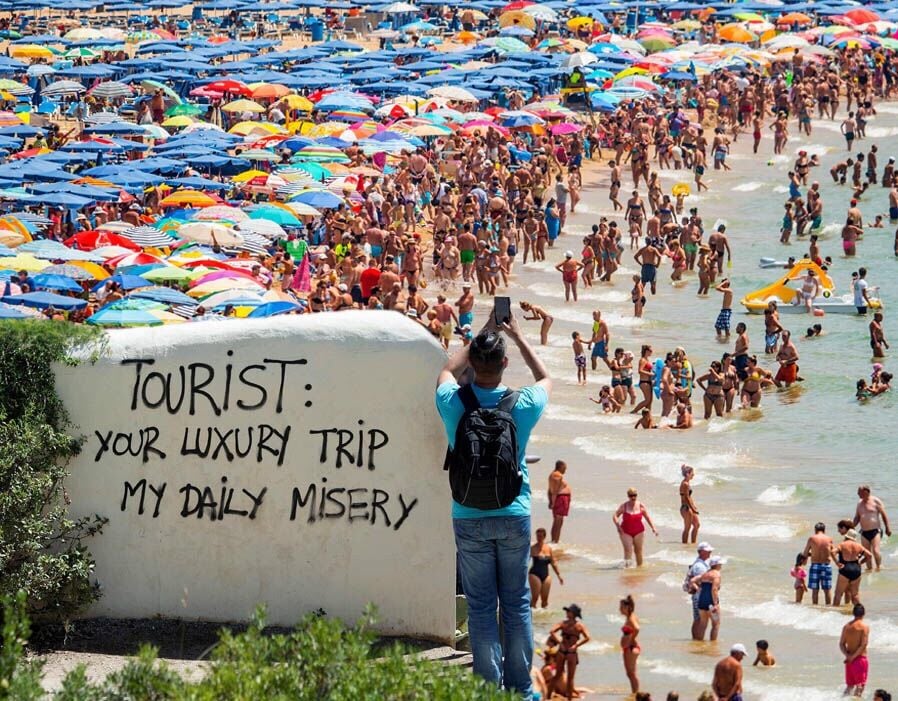Tourists behaving badly: Locals protest for better respect

Thailand is not the only country in the world with badly behaved tourists. As Ibiza and Mallorca say no to tourists coming to party, it’s becoming increasingly clear that expectations on travellers in the world’s most popular destinations are changing.
In recent months, Thailand has seen an increase in crime committed by foreign tourists, from illegal employment to property damage and physical violence. Over 700 foreigners have taken over jobs reserved for Thai locals, according to the government.
In January, a Russian tourist caused significant damage to a governor’s office in Phuket Town Hall. One case of physical assault that has grabbed headlines is that of the Swiss expat who kicked a female Thai doctor who sat on the steps of his Phuket villa. This is just one of hundreds of badly-behaved farang cases in Thailand.
Unfortunately, Thailand is not alone.
In a bold move echoing protests in the Canary Islands last April, banners sent a clear message:
“Tourist: respect my land!”
With peak travel season approaching, a wave of anti-tourist sentiment surges among locals in summer hotspots. Barcelona, Athens, Málaga, and other tourist-laden cities in Europe have witnessed similar protests.
Residents in over-touristed locales crave a better breed of tourist: one honouring local culture and nature, not guzzling cheap beer on beaches, leaving litter behind. Now, global destinations voice preferences on visitors. On the yes list: spenders boosting local economies, behaving respectfully. On the no list: boozy tourists, often nuckle-dragging, xenophobic Brits, flouting local norms, harming communities.
Carina Ren, tourism researcher at Aalborg University, notes a surge in poorly behaved tourists, attributing it to sheer volume. Sebastian Zenker, overtourism expert, stresses the need for tourism to benefit locals financially. Antje Martins, from the Global Sustainable Tourism Council, urges better management to address behavioural issues.
Industry shifts are underway. Soft initiatives like tourism pledges aim to guide behaviour, while tougher measures like tourism taxes, as seen in Venice and Bhutan, curb influx. Some cities, like Amsterdam, limit tourist beds to control numbers.
Zenker predicts a rise in destinations rejecting certain demographics, like Amsterdam’s Stay Away campaign targeting rowdy British stag parties. Flashpoint issues this spring hint at broader industry change. Martins warns that unless tourism becomes sustainable, destinations face ruin, reported BBC UK.
Travelling responsibly is paramount. As Martins underscores, these destinations are home to many.
Latest Thailand News
Follow The Thaiger on Google News:


























